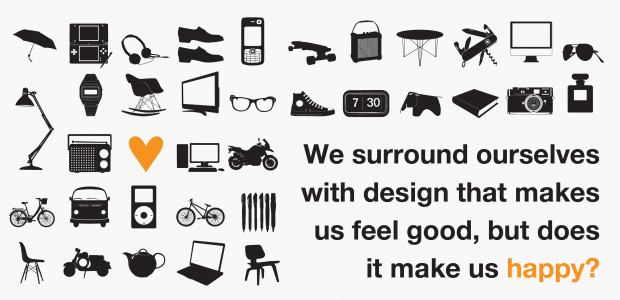Designing for positive impact and human flourishing

A few days ago Experientia attended the Service Design Days in Barcelona. One of the surprise presentations was by Anna Pohlmeyer, who co-directs the Delft Institute for Positive Design.
Although the title seemed a bit airy and ephemeral, the talk was anything but. Anna’s approach was solid and well grounded in research. She showed how product and service designers need to take emotions more seriously than just designing for delight or pleasure.
Her wellbeing theory is based on Martin Seligman’s PERMA model (Pleasure, Engagement, Relatedness, Meaning and Achievement), which can be actuated through a number of design roles and activities. She also presented EmotionPrism, a design tool that communicates 25 pleasurable human-product interactions.
Rich detail can be found in the Positive Design Reference Guide (an issuu publication that is unfortunately not downloadable).
Other tools (decks, books, guides, cards, videos and posters) can be found on their website and scientific papers are available via Google Scholar.
Anna Pohlmeyer’s background is in psychology (Humboldt University Berlin). Furthermore, she completed her PhD research in engineering design at TU Berlin and the University of Luxembourg. Her thesis focused on early phases of product development in the design of human-technology interaction. Prior to her doctoral studies, she worked at MIT AgeLab on ideas and technologies that can improve quality of life across the lifespan. As assistant professor at TU Delft, she investigates theoretical and empirical aspects of design-mediated well-being.



